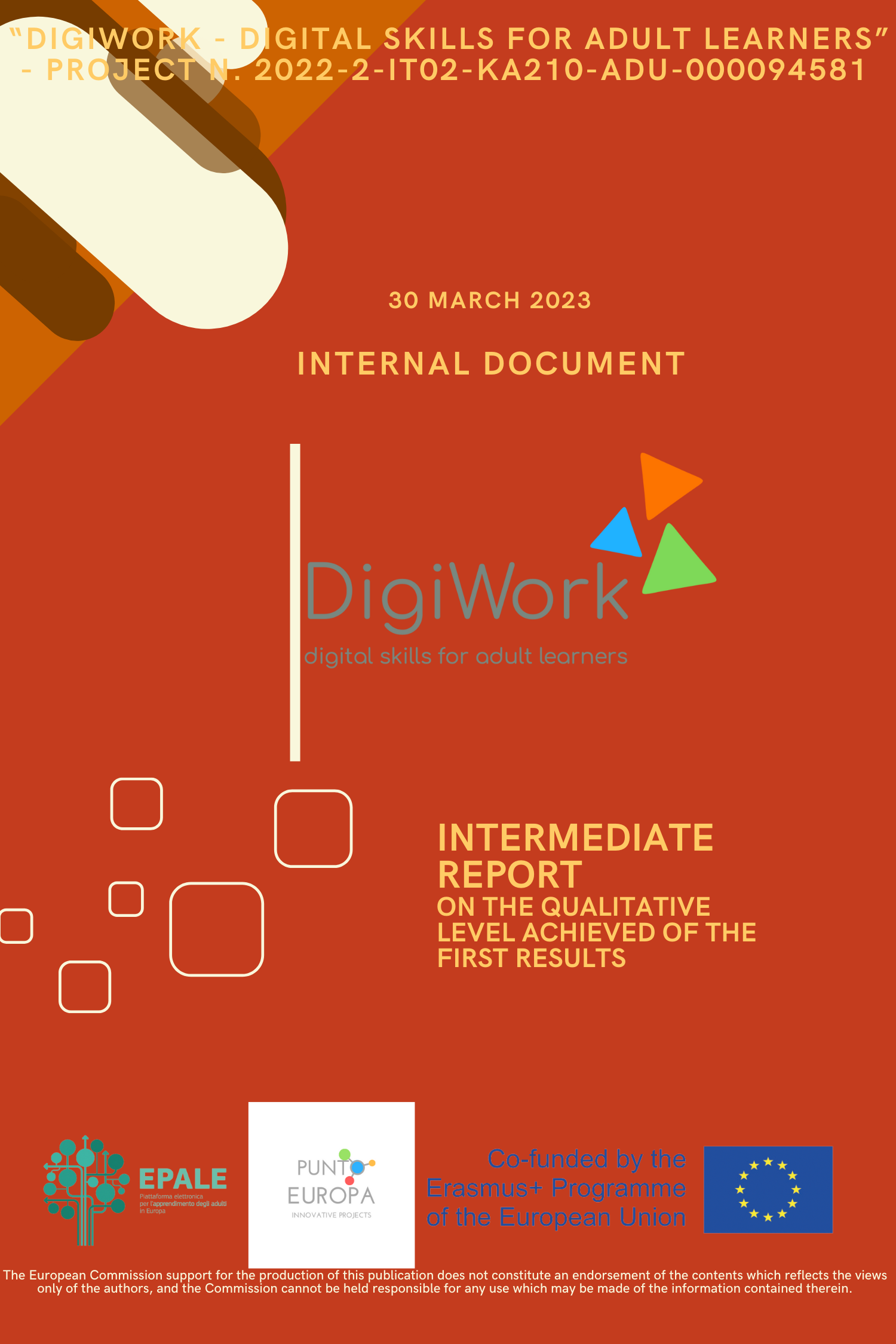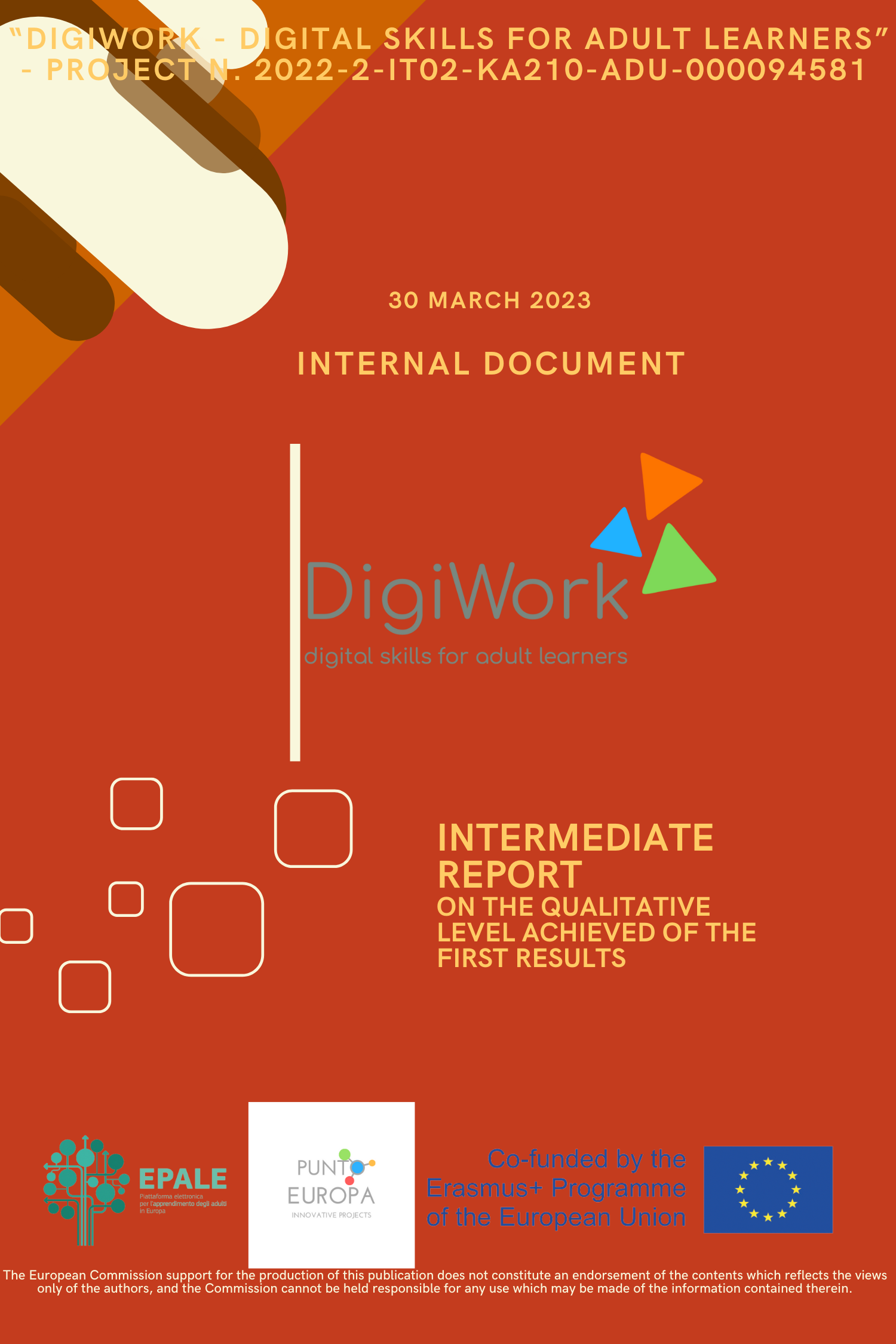Mid-Term Report

Progress on E-Learning Modules After Initial In-Person Tests
The DigiWork project continues to make significant strides in empowering adults over 45 with essential digital skills through its comprehensive e-learning program. As we approach the mid-point of the project, the Mid-Term Report sheds light on the progress made so far, particularly regarding the development and refinement of the e-learning modules, following the initial in-person testing with adult learners.
Key Findings from the In-Person Tests
After conducting the first round of in-person tests with the target group, several insights emerged:
- User engagement & accessibility:
The in-person testing revealed that most learners were able to engage effectively with the e-modules. However, many participants, especially those with lower levels of digital literacy, required additional guidance in navigating online platforms. This has led the team to introduce more step-by-step instructions and interactive guidance within the modules. - Content relevance & practicality:
Learners responded positively to the practical applications of digital skills, particularly in modules like Digital Security and Video Conferencing. Feedback indicated that the inclusion of real-world examples helped bridge the gap between theory and practice, encouraging participants to apply what they learned in their daily lives. - Learning pace & structure:
One of the challenges highlighted was the varied pace of learning among participants. To address this, we have made improvements in module structure, including the introduction of pause-and-reflect sections and optional in-depth tutorials for those needing extra support.

Progress in developing the e-learning modules
Based on the feedback gathered, the team has implemented several updates and improvements to the e-modules:
- Refining content: Each module has been updated to make the language clearer and more accessible. Additionally, extra visual aids, such as infographics and explainer videos, have been integrated to simplify complex topics.
- Enhancing interactivity: To maintain engagement, interactive quizzes and practical exercises have been incorporated into all modules. This allows learners to test their understanding in real-time, receiving instant feedback to guide their progress.
- Customizing learning pathways: Recognizing the diversity in learner abilities, personalized learning pathways have been introduced. Learners can now choose between a basic, intermediate, or advanced route based on their digital proficiency, ensuring that each module meets individual needs.
Next Steps
As the project moves forward, further in-person and online testing will be conducted to ensure that all modules are fine-tuned to meet the learning needs of the target group. By the project’s conclusion, we aim to have fully developed, highly interactive, and practical e-modules that support adults in their digital education journey.